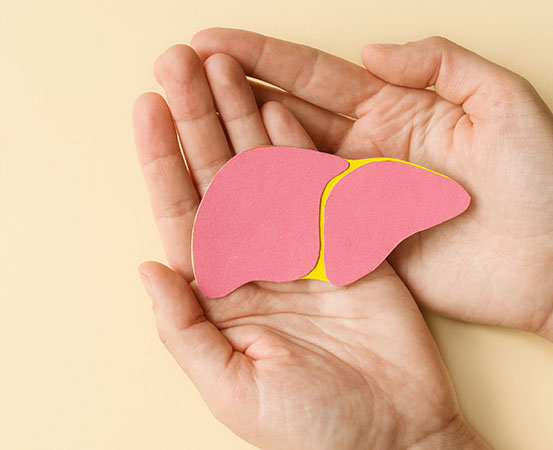Vitamin A is an essential nutrient which helps improve your health, especially vision and immunity. It also has anti-oxidative properties that keep inflammation under check, especially on your skin. However, excess vitamin A could lead to vitamin A toxicity or hypervitaminosis A and could seriously affect your liver.
Experts point out that you should always depend on dietary sources for vitamins, especially for those that cannot be expelled through urine like vitamin A. As these vitamins are also required in minimal dosage for our body and it is always advisable to include fresh fruits and vegetables. Vitamin supplements should be opted for and consumed only on doctor’s prescription.
Dr Chetan Ramesh Kalal , Program Director, Hepatology & Transplant Medicine, Nanavati Max Super Speciality Hospital, Mumbai, says, “Liver damage associated with excess vitamin A intake is more likely to occur with prolonged and high-dose supplementation rather than through dietary sources alone.” The symptoms of vitamin A toxicity range from mild symptoms to severe problems like cirrhosis or liver failure, he adds.
Vitamin A toxicity and liver damage
There are two main types of vitamins, water soluble and fat-soluble ones. Water soluble ones like vitamin B and C get expelled from our body through urine whereas fat soluble ones like vitamin A, D, E and K get deposited on the liver tissues. So excess deposition of these vitamins on your liver tissues could have a toxic effect on the liver. The liver contains stellate cells which store excess fat including fat soluble vitamin A. Excess fat deposition on liver severely cripples its regular function of flushing out toxins and waste from our body.
Dr Kalal explains that whenever there is an excessive intake of vitamin A, stellate cells become overwhelmed and exceed capacity. This leads to the activation and enlargement of stellate cells. These activated stellate cells in the liver can cause increased production of collagen and cause inflammation in the liver.
This excess of collagen production can lead to fibrosis (scarring of the tissue), which if left untreated can progress to cirrhosis (permanent damage due to scarring of liver). Vitamin A toxicity can be either acute or chronic, based on the amount and duration of vitamin A consumption, he adds.
Causes of hypervitaminosis A
Bhuvaneswari Vidyashankar, Consultant Dietician, Promed Hospital, Chennai, says people who are on treatments for skin problems are prone to vitamin A toxicity as the medications contain high doses of vitamin A.
According to Dr Kalal, self-dosage also leads to vitamin A toxicity. Generally, we don’t require additional dosage of vitamin A supplements. A regular diet is mostly sufficient for vitamin A except in certain medical conditions (pancreatic disease, or eye disease) that require supplementing vitamin A, but this is done under supervision, he adds.
Diagnosing hypervitaminosis A
Experts say medical history and blood tests are helpful in diagnosing hypervitaminosis A. Dr Kalal gives the list of some typical symptoms of vitamin A.
- Abdominal pain
- Nausea
- Vomiting
- Loss of appetite
- Jaundice
- Dark urine.
He cautions of daily recommended dosages of vitamin A. He adds, to prevent excess vitamin A, one should read food labels to know the amount of vitamin A in the food. The recommended limit of vitamin A is anywhere between 700 mg and 900 mg for adults.
Knowing the symptoms and medical history is also helpful to determine the liver damage caused by vitamin A toxicity, says Dr Krishanu Banik, Consultant Gastroenterology, Fortis Hospital, Kolkata.
He adds, “It’s important to consult with doctors before taking any high-dose vitamin A supplements. A person should always consume vitamin A supplements as per the dose and duration prescribed by the doctor.”
Good sources of vitamin A
Excess intake of vitamin A can lead to toxicity, however it’s important to consume the recommended limit to avoid vitamin A deficiency.
Vidyashankar says, adding fruits, vegetables and animal products like liver, egg yolk and dairy products in your diet will provide adequate vitamin A to stay healthy.
“Carrots and green leafy vegetables, certain carotenoids like orange or yellow pumpkin, beans, and legumes are also high in vitamin A”, she adds.
Takeaway
Vitamin A is an essential nutrient for your health but if consumed in excess, especially in the form of vitamin supplements could lead to severe liver complications. It is a fat soluble vitamin and hence will not get expelled from the body. Excess vitamin A gets stored in your fat storage cells in the liver and ends up affecting the basic functions of your liver. Experts point out that vitamin A supplements should not be taken unless prescribed by a doctor. Dietary sources of vitamin A, mainly fruits, vegetables and some animal products, have enough vitamin A in them to maintain your health.



